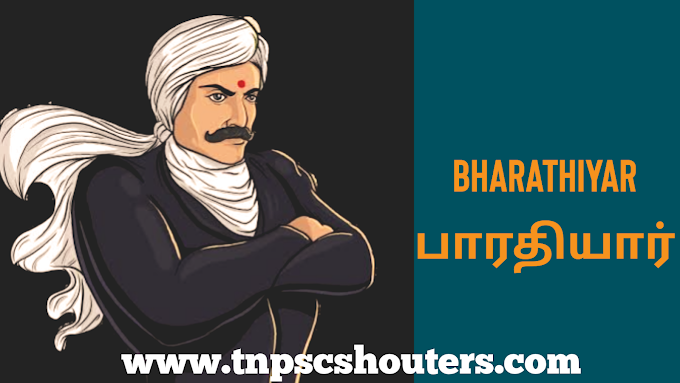TAMIL
- ஒவ்வொரு ஆண்டும் நவம்பர் 26 அன்று, இந்தியா அரசியலமைப்பு தினத்தை கொண்டாடுகிறது, இது இந்திய அரசியலமைப்பை ஏற்றுக்கொண்டதைக் குறிக்கும் வகையில் "சம்விதன் திவாஸ்" என்றும் குறிப்பிடப்படுகிறது.
- 1949 ஆம் ஆண்டு நவம்பர் 26 ஆம் தேதி அரசியலமைப்புச் சபையால் இந்திய அரசியலமைப்பு இயற்றப்பட்டது, அது ஜனவரி 26, 1950 இல் நடைமுறைக்கு வந்தது.
- பி.ஆர். அம்பேத்கர் எழுதிய அரசியலமைப்பு அமெரிக்க வரலாற்றாசிரியர் கிரான்வில்லி செவார்டால் "முதல் மற்றும் முதன்மையான சமூக ஆவணம்" என்று குறிப்பிடப்பட்டுள்ளது. ஆஸ்டின்.
- 1946 இல் கேபினட் மிஷன் திட்டத்தின் ஒரு பகுதியாக அமைக்கப்பட்ட அரசியல் நிர்ணய சபை இந்திய அரசியலமைப்பை உருவாக்கியது. டிசம்பர் 9, 1946 அன்று, சட்டமன்றம் முதன்முறையாகக் கூடியது,
- அதன் மூத்த உறுப்பினரான டாக்டர் சச்சிதானந்த சின்ஹாவை அதன் தற்காலிகத் தலைவராகத் தேர்ந்தெடுத்தார். 1946 ஆம் ஆண்டு டிசம்பர் 11 ஆம் தேதி அதன் நிரந்தரத் தலைவராக பணியாற்ற டாக்டர் ராஜேந்திர பிரசாத்தை சட்டமன்றம் தேர்ந்தெடுத்தது.
- டாக்டர் பி.ஆர். தலைமையில் ஒரு வரைவுக் குழு. அரசியலமைப்புச் சட்டத்தை உருவாக்குவதற்காக அரசியலமைப்புச் சபையால் அமைக்கப்பட்ட 13 குழுக்களில் அம்பேத்கரும் ஒருவர்.
- இந்தக் குழுக்களின் அறிக்கைகளின் அடிப்படையில் ஏழு பேர் கொண்ட வரைவுக் குழு அரசியல் சட்டத்தை தயாரித்தது.
- அரசியலமைப்பின் முதன்மையான பாதுகாவலர்கள் இந்திய மக்கள். அவர்கள் இறையாண்மை கொண்டவர்கள், அவர்களின் நினைவாக அரசியலமைப்பு அங்கீகரிக்கப்பட்டது.
- அரசியலமைப்பு குடிமகனுக்கு அதிகாரத்தை அளிக்கிறது, ஆனால் குடிமக்கள் அரசியலமைப்பை நிலைநிறுத்துவதன் மூலமும், ஒட்டிக்கொள்வதன் மூலமும், அதைப் பாதுகாப்பதன் மூலமும், வார்த்தைகள் மற்றும் செயல்களின் மூலம் அதன் முக்கியத்துவத்தை அதிகரிக்க விடாமுயற்சியுடன் செயல்படுவதன் மூலமும் அதிகாரத்தை வழங்குகிறார்கள். அரசியலமைப்பு அனைவருக்கும் சொந்தமானது, குறிப்பாக யாருக்கும் இல்லை.
- அடிப்படை உரிமைகளுக்கான பகுதி III இருந்தபோதிலும், 1949 இல் அங்கீகரிக்கப்பட்டபோது குடிமக்களுக்கான அடிப்படைக் கடமைகள் தொடர்பான எந்த விதியையும் அரசியலமைப்பில் சேர்க்கவில்லை. அரசாங்கம் நியமித்த ஸ்வரன் சிங் கமிட்டியின் பரிந்துரைகளின் பேரில், அரசியலமைப்பின் 42 வது திருத்தம் நிறைவேற்றப்பட்டது.
- 1976, குடிமக்களின் அடிப்படைக் கடமைகளைச் சேர்த்தது. அந்த நபர் தனது அடிப்படை உரிமைகளைப் பயன்படுத்தும்போது தனது பொறுப்புகளை புறக்கணிக்கவில்லை என்பதை உறுதிசெய்ய நடவடிக்கை எடுக்கப்பட வேண்டும் என்று குழு பரிந்துரைத்தது.
- அடிப்படைக் கடமைகள் என்பது ஒவ்வொரு குடிமகனுக்கும் ஒரு நிலையான நினைவூட்டலாக செயல்படுவதாகும், அரசியலமைப்பு குறிப்பிட்ட அடிப்படை உரிமைகளை அவர்களுக்கு வழங்கியிருந்தாலும், குடிமக்கள் ஜனநாயக நடத்தை மற்றும் நடத்தையின் சில அடிப்படை விதிமுறைகளைக் கடைப்பிடிக்க வேண்டும், ஏனெனில் உரிமைகளும் கடமைகளும் ஒன்றோடொன்று தொடர்புடையவை.
- Every year on November 26th, India celebrates Constitution Day which is also referred to as “Samvidhan Divas,” to mark the adoption of the Indian Constitution.
- The Constitution of India was enacted by the Constituent Assembly on November 26, 1949, and it became effective on January 26, 1950. The B. R. Ambedkar-written Constitution has been referred to as “first and foremost a social document” by American historian Granville Seward Austin.
- A Constituent Assembly constituted as part of the Cabinet Mission Plan in 1946 drafted the Indian Constitution. On December 9, 1946, the Assembly convened for the first time, electing Dr. Sachhidanand Sinha, its oldest member, as its provisional president. The Assembly elected Dr. Rajendra Prasad to serve as its permanent Chairman on December 11, 1946.
- A Drafting Committee led by Dr. B.R. Ambedkar was one of the 13 committees established by the Constituent Assembly to draft the constitution. A seven-member Drafting Committee prepared the Constitution based on the reports of these committees.
- The Constitution’s primary guardians are the people of India. They are the ones who have sovereignty, and the Constitution was ratified in their honour.
- The Constitution gives the citizen power, but the citizens also give the Constitution power by upholding it, sticking to it, protecting it, and working diligently to increase its significance via words and acts. The Constitution belongs to everyone and to no one in particular.
- Despite having Part III for fundamental rights, the Constitution did not include any provision regarding fundamental duties to citizens when it was ratified in 1949. On the recommendations of the Swaran Singh Committee, which the government appointed, the 42nd Amendment to the Constitution was passed in 1976, adding the Fundamental Duties of Citizens to it.
- The Committee recommended that actions be made to make sure that the person did not neglect his responsibilities while exercising his fundamental rights.
- Fundamental duties are meant to serve as a constant reminder to every citizen that while the constitution specifically granted them certain Fundamental Rights, it also required citizens to observe certain basic norms of democratic behaviour and conduct because rights and duties are related to one another.










